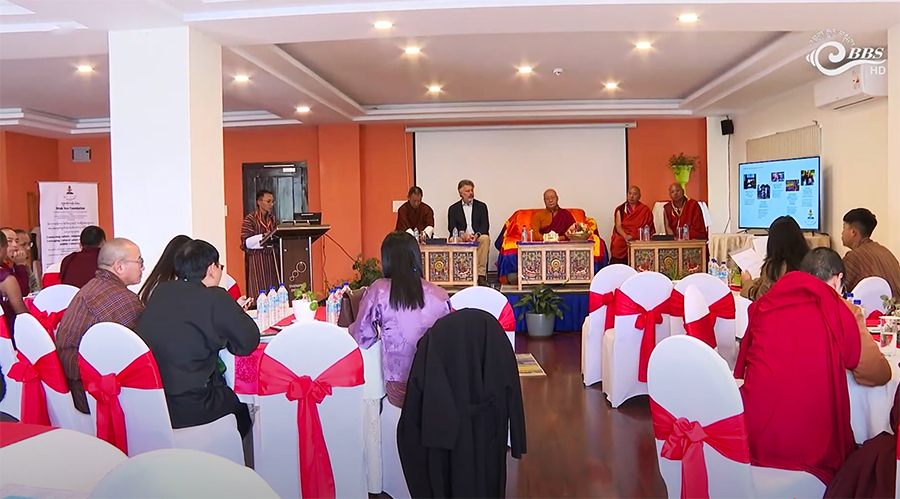 High in Bhutan’s mountains, rare herbs with healing powers grow quietly but the knowledge of how to use them is said to be fading fast, leaving centuries of traditional wisdom undocumented and at risk of being lost forever. Such knowledge is referred to as Traditional Ecological Knowledge. This concern was shared by the National Biodiversity Centre in a seminar in Thimphu on Friday.
High in Bhutan’s mountains, rare herbs with healing powers grow quietly but the knowledge of how to use them is said to be fading fast, leaving centuries of traditional wisdom undocumented and at risk of being lost forever. Such knowledge is referred to as Traditional Ecological Knowledge. This concern was shared by the National Biodiversity Centre in a seminar in Thimphu on Friday.
Traditional Ecological Knowledge is the knowledge, practices, and beliefs that indigenous and local people pass down over time by living closely with nature.
 At the seminar titled “Promoting Nature Conservation in Bhutan: Leveraging Cultural Values and Practices to Enhance Community Stewardship”, the National Biodiversity Centre said Traditional Ecological Knowledge is a “dying art.”
At the seminar titled “Promoting Nature Conservation in Bhutan: Leveraging Cultural Values and Practices to Enhance Community Stewardship”, the National Biodiversity Centre said Traditional Ecological Knowledge is a “dying art.”
Much of this knowledge remains undocumented and is at risk of extinction due to declining use and limited transmission to younger generations. As communities modernise and younger members move away from traditional ways of life, this knowledge often disappears along with the elders who carry it.
The centre said Bhutan has a huge bank of traditional knowledge associated with biological diversity which can be very instrumental in discovery of pharmaceutical compounds for commercial product development.
Mani Prasad Nirola, Dy. Chief Biodiversity Officer of National Biodiversity Centre said “If you don’t document this knowledge right on time, we might lose them before knowing their existence, you know. So, as I said before, we might have a unique plant in our forest, lying somewhere in the forest, which can cure maybe a cancer or HIV. But if we are not able to document this knowledge, we might lose without knowing its existence.”
The DrukNyo Foundation, a nonprofit organisation and charitable arm of Sumthrang Monastery in Bumthang, is coordinating the seminar. With support from Marwell Wildlife, it aims to preserve traditional knowledge through the conservation of ancient spiritual traditions and the country’s cultural heritage.
Sonam Nyenda, Executive Director of DrukNyo Foundation said “We have lots of local ecological ideas, and these are fading away with modern education. Retrieving those ideas is very important. We have already heard from the keynote speaker, Dr. Karma. Retrieving them, analysing them, and sharing these ideas are very important. I think we should do that. One of the things that we are doing through this project is also documenting all these ideas.”
The foundation plans to document such knowledge by studying religious texts and conducting interviews with individuals who possess oral traditions. By capturing both written and spoken sources, the initiative aims to safeguard Bhutan’s rich ecological wisdom.
Samten Dolkar
Edited by Kipchu







